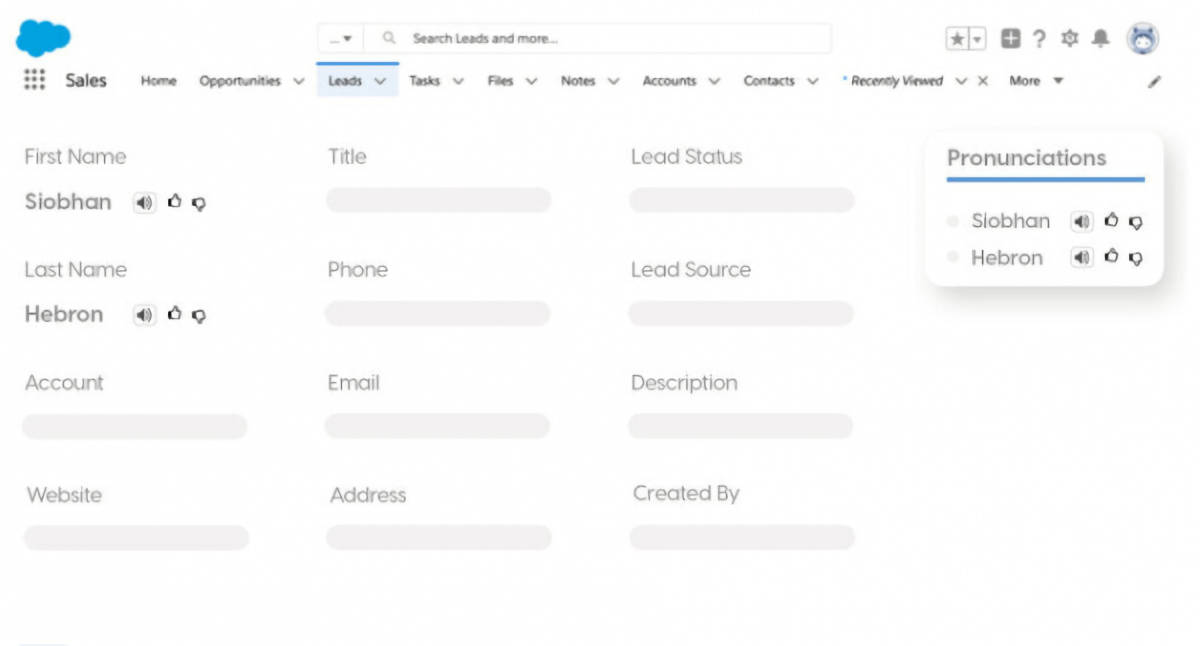We’ve all been faced with a name that’s difficult to pronounce. But not everyone considers the consequences of their mispronunciations. In a piece for Fast Company, Madhumita Mallick, the head of inclusion, equity and impact at Carta, recalls how her name became a source of anxiety even when she was a grade-school student.
Studies have indeed found that when peers and teachers incorrectly pronounce or change the names of students of color, those students participate less in class and become socially withdrawn to avoid associating with their name. As the co-authors of one study wrote in 2012: “actions and attitudes [students] experienced in K-12 schools highlight a type of cultural ‘othering’ that contradicts our goals for multicultural school environments … even just stumbling over a name they had never seen before, the tone set by a teacher about a student’s name [is] something significant.”
Praveen Shanbhag, the CEO of Namecoach, heard a speaker at his sister’s alma mater flub her name during her college graduation. That, along with his experiences as a first-generation immigrant to the U.S., inspired him to co-found Namecoach, which develops name pronunciation tools that can be embedded in existing platforms like Salesforce, Canvas and Gmail.
“We are on a mission to make name mispronunciation a thing of the past for everyone,” Shanbhag told TechCrunch via email.
Shanbhag started dabbling in programming while working on his PhD in philosophy at Stanford. He decided to code an app that would collect recordings of students saying their names and deliver them to name readers for graduation, which became Namecoach. By 2016, Shanbhag says that hundreds of schools were using Namecoach’s software and services.
Namecoach — which eventually broadened its customer base to client brands — isn’t alone in the market. NameShouts offers a robust set of name pronunciation tools, as does Facebook, Slack and LinkedIn. But Shanbhag tells me that early on, he sought to differentiate Namecoach by investing heavily in AI and integrations.

For example, Namecoach uses an AI system to predict the correct pronunciation when someone’s name has multiple correct pronunciations, based on factors like nationality, ethnicity, gender and location. Another of the platform’s systems synthesizes speech in situations where an audio recording of a name isn’t available.
At a high level, Namecoach shows name pronunciations both user-generated and drawn from a database of audio name pronunciations. When asked about the system’s accuracy and whether users can remedy mistakes that might make their way onto the database, Shanbhag said that Namecoach consults with linguistic experts and offers a submission form for corrections.
It’s not yet live, but Shanbhag says that Namecoach is developing an AI to provide pronunciations that take the speaker’s native language into account — not just the name-owner’s language. “Your name is central to your identity, and accurate pronunciation sets the tone for a positive interaction for both parties,” he said.
Namecoach’s platform works out-of-the-box with services including Microsoft Teams, Outlook and Google Workspace and offers an API and software development kit to let third parties build Namecoach’s functionality into their products. But the focus over the next few months will be the startup’s first-ever consumer app, Shanbhag says, which will be made available as a Chrome extension next year.
Namecoach — which today closed an $8 million Series A round led by Impact America Fund with participation from Authentic Ventures, Metaplanet, Engage.VC, Founders Fund, Bisk Ventures and others — also plans to ramp up its sales and marketing efforts and expand the platform’s collection of connectors. Shanbhag hinted at capabilities beyond pronunciation guidance coming down the pipeline, including prompts to enable warm interactions in sales scenarios and feedback to help users improve their conversations more generally.
Leaning into sales applications makes sense given Namecoach’s marquee customers — Salesforce, NetJets and PwC. Beyond those three, the 30-person startup claims to have more than 300 education and corporate clients worldwide.
“The Series A funding enables us to accelerate our goal of integrating novel voice technology into every communication workflow to solve name pronunciation across a wide spectrum of use cases during any voice interaction,” said Shanbhag, who wouldn’t disclose revenue figures when asked. “Namecoach has customers across a very wide range of verticals, use cases and organization size, which means that we are not reliant on any subsegment to thrive in a downturn.”
To date, Palo Alto-based Namecoach has raised $15 million in venture capital.































Comment